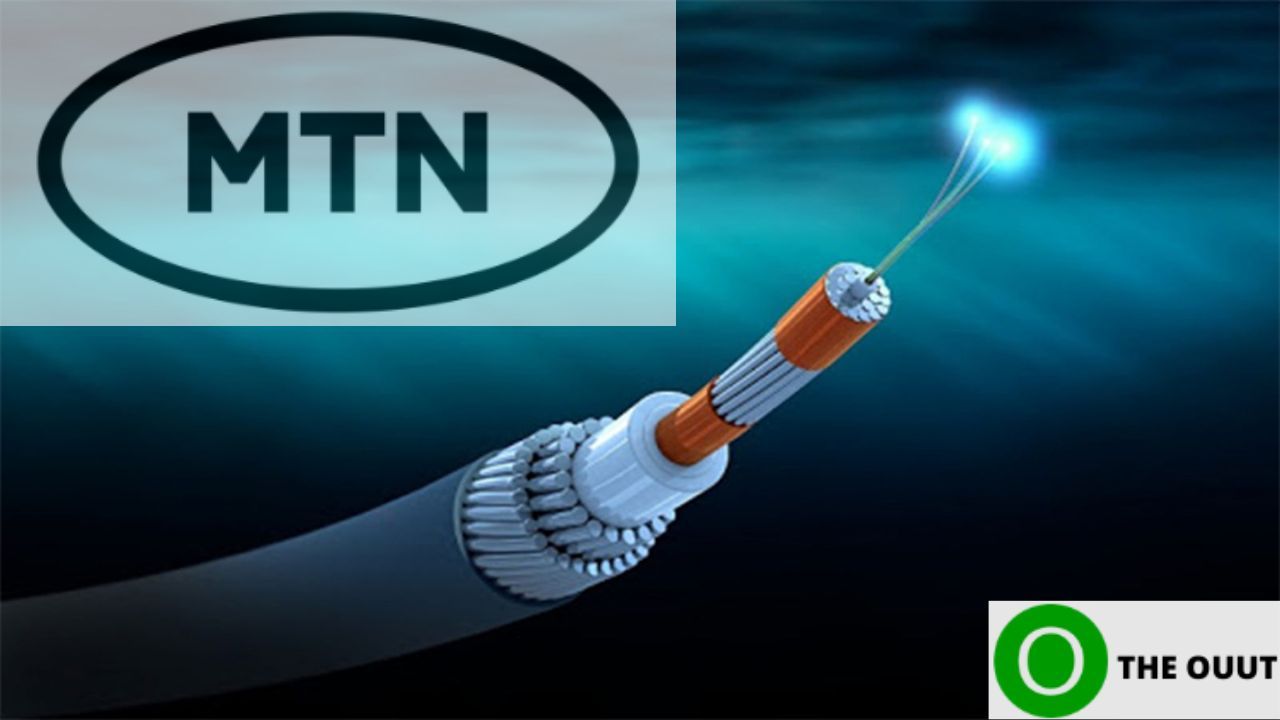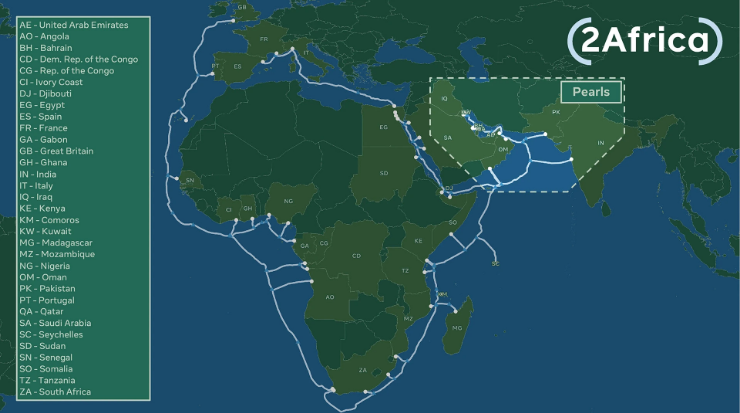Another Subsea Landing. Highlighting What 2Africa Subsea Cable Means for Africa

The international network of economies, businesses, and people that makes up the internet is supported by subsea cables. Around 436 undersea cables were expected to be in operation by the end of 2021. Submarine fiber optic cables, often known as subsea cables, are among the most vital parts of excellent connection.
Designing policies and setting priorities for infrastructure investments that will best support growth requires an understanding of the effects of subsea cables. According to studies, one of the best development strategies for Africa’s economic growth is the investment in broadband infrastructure and undersea cables. An announcement like MTN South Africa’s landing of the 45,000 km 2Africa subsea cable in this context is exciting for both startups and the South African economy as a whole.
The first of a planned six landings, which will take place in Nigeria, Ghana, Cote d’Ivoire, Yzerfontein, and Duynefontein in the Western Cape, South Africa, is now underway. In 2023, the 2Africa cable connection will become operational.
To complete the project, MTN South Africa collaborated with the 2Africa Consortium and MTNGlobalConnect, the digital wholesale and infrastructure Services Company of the MTN Group. MTN claimed in a statement that the connection would create the framework for better intercontinental connectivity and global internet access. Once operational, it will be crucial in bringing much-needed capacity from Europe, the Middle East, and Asia to Africa.
About the 2Africa Subsea Cable
The 2Africa subsea fiber optic cable system is intended to connect Europe with the Middle East. According to 2Africa’s partner, it has a design capacity of 180 Tbps, which is greater than the total combined capacity of all subsea cables now serving Africa. 2Africa subsea cable project is designed to serve the whole of Africa, seamlessly interconnecting both the east and west coasts.

With the help of the 2Africa cable’s Internet capabilities, MTN Group will be able to carry out its “Ambition 2025” strategy, which calls for the business to become the top digital service provider in Africa within the next several years. The company expects to generate up to $1 billion in revenue and deploy 135,000 km of proprietary fiber across the continent by 2025 in order to accomplish this. Additionally, MTNGlobalConnect will be in charge of landing the new cable in Ghana, Nigeria, Côte d’Ivoire, and Sudan.
“Strategic partnerships such as the one we have with the 2Africa consortium will help us accelerate and deepen internet adoption and socio-economic progress across the African continent. Data traffic across African markets is expected to grow between four and five fold over the next 5 years, so we need infrastructure and capacity to meet that level of growth and demand,” comments Ralph Mupita, MTN Group CEO.
Subsea Attention
Africa is starting to receive its fair share of undersea cable attention. MTN’s 2Africa cable comes barely a year after Google launched Equiano undersea cable. The cable, according to MTN South Africa, will support the continued expansion of 4G, 5G, and fixed broadband access for millions of people while providing much-needed internet capacity, reliability, and improved internet performance across a significant portion of Africa. It will also supplement the Middle East’s rapidly expanding capacity demand.
According to studies, South Africa’s GDP per capita increased by 6.1% as a result of cable landings, which boosted connectivity and sparked business activity. The number of people employed in places with fiber infrastructure increased by 2.2% across the nation. Equiano and 2Africa’s arrival in South Africa is expected to bring about significant economic growth, a flood of new jobs, and improved connectivity.
Three weeks after touching down in Ras Ghareb, Egypt, 2Africa finally lands in South Africa. As part of the phased rollout for full operation in 2024, the subsequent landings are taking place. Without a doubt, one of the most significant growing markets in the world that is embracing digital transformation is Africa.
